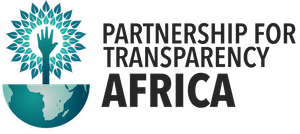
Gender based violence (GBV) is widespread in Africa, with more than 45% of women experiencing one or more incidents, compared to a global average of 35%. The problem is even more acute in South Africa (SA), where studies estimate that more than 50% of women experience domestic violence at least once in their lifetime, and three-quarters of men admit to perpetrating some form of violence against women.
SA has some of the most progressive and comprehensive laws and policies in the world to promote gender equality and support those affected by GBV seeking legal recourse. However, a 2011 study estimates that only 0.3% of GBV cases are reported due to “a lack of faith in the criminal justice system.”[2] This is in large part due to weak implementation of relevant laws and policies, including lack of funding; duplication of mandates and confusion of roles; failure to address problems; and inadequate training for frontline responders.
Civil society can play a vital role in bridging these gaps through increased public oversight of services offered to those affected by GBV and discrimination and by providing high-quality, independent, feedback on the effectiveness of laws and policies.
PTF-Africa’s work on GBV is part of a larger, global PTF program that has brought together prosecutors, law enforcement, government officials, CSOs and other advocates to improve GBV protection efforts and criminal justice response since 2014. Our program in South Africa aims to increase access to and improve the quality of public services for those that have been affected by GBV and discrimination through greater public oversight and feedback on the effectiveness of laws and public policies.
Our program in South Africa aims to increase access to and improve the quality of public services for those that have been affected by GBV and discrimination through greater public oversight and feedback on the effectiveness of laws and public policies. It supports CSOs in South Africa, especially those serving rural and vulnerable populations, implementing social accountability programs aimed at increasing access to and improving the quality of redress services for those affected by GBV and discrimination.
You may also be interested in...
-

Citizen Action Platform (Uganda)
The Citizen Action Platform (CAP) program is a flexible interface that collects individual feedback on public service delivery as it is submitted to UNICEF's U-Report program, and confidentially re-distributes relevant information to community-based organizations, who monitor the quality of public services and seek accountability for action at the local level.R0.00 donatedDonate -
 8.125
8.125Legal Protections Against Gender Based Violence in South Africa
More than 50% of women in South Africa experience domestic violence at least once in their lifetime and three-quarters of men admit to perpetrating some form of violence against women. This program aims to improve access to the justice system and other quality public servicesfor survivors of Gender Based Violence (GBV).R65,000.00 donated of R800,000.00 goalDonate -
 8.8533333333333
8.8533333333333Business and Municipal Good Governance Fellowship (Cameroon)
To make local economies stronger, resilient and responsive to resource generation, capital management and employment creation, the Municipal Councils Business Management and Public Service Governance Fellowships [BMF] is proving useful to support local government councils in their effort to translate national development policies into value creation and growth prospects for ordinary citizens locally.R26,560.00 donated of R300,000.00 goalDonate


